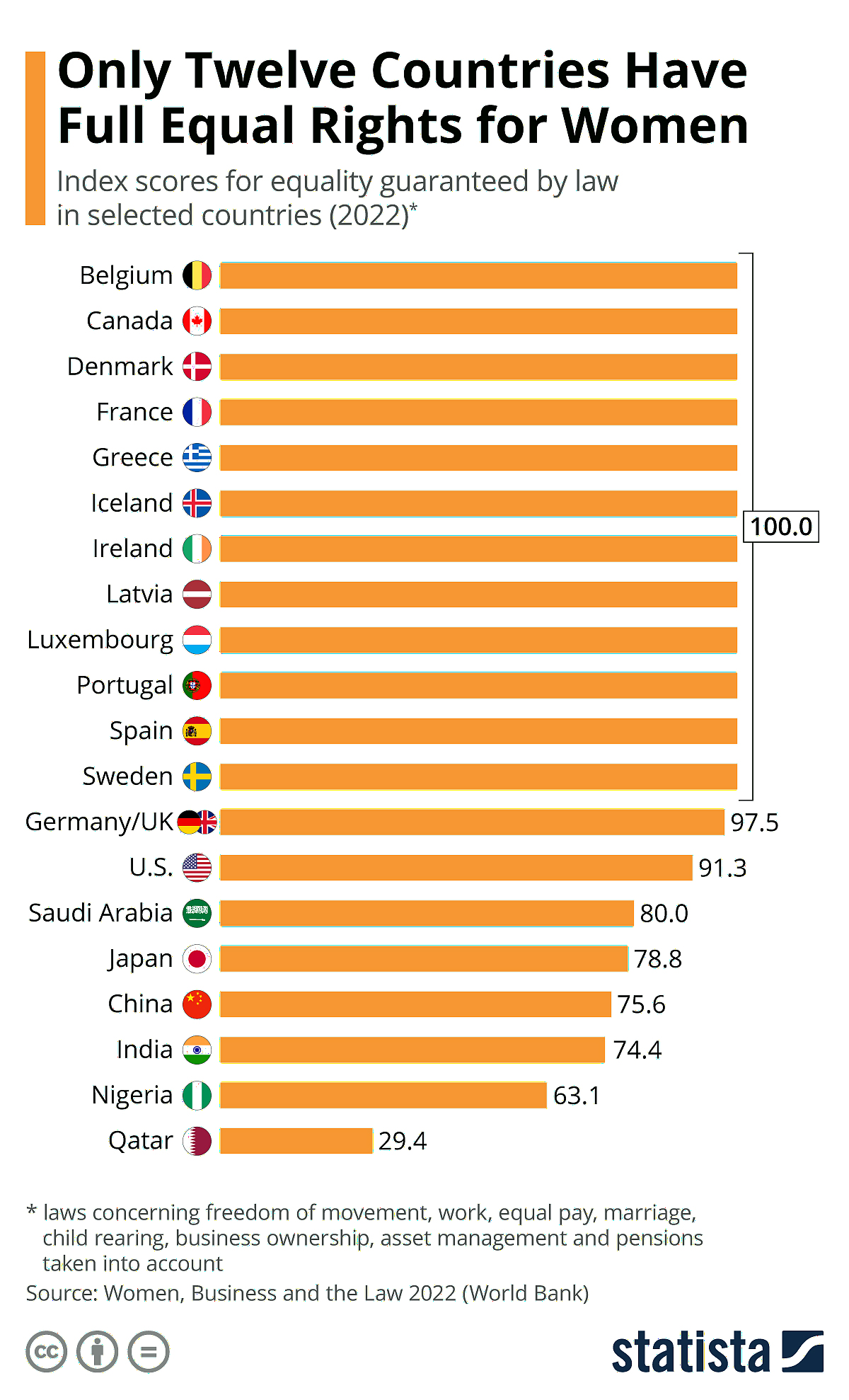
views
Tehran has been burning since September 14 following the death of a university student Mahsa Amini who died after suffering an injury to her head, allegedly caused by Iran’s notorious morality police who were dissatisfied with Amini’s head covering or hijab.
Following the 1979 Islamic Revolution, the morality police has been given strong powers which it uses to ‘discipline’ women. They are known to even attack women if they are not seen wearing the hijab which has been compulsory for women in Iran since 1979.
Amini’s death and the protests that followed has once again put the spotlight on how Iran treats its women. Iran is no exception when it comes to mistreatment of women.
Women’s rights are challenged almost everywhere in the world – the Global North as well as the Global South.
A World Bank study titled Women, Business and the Law released in 2022 found that only twelve countries in the world offer full legal protections to women.

Those 12 countries are – Belgium, Canada, Denmark, France, Greece, Iceland, Ireland, Latvia, Luxembourg, Portugal, Spain and Sweden. These countries offered full equal rights for men and women, at least from a legal perspective, according to Statista.
Countries like the US, the UK and Germany ranked below these nations.
However, these are from a legal perspective. Social restrictions, restrictions on mobility, restrictions on lifestyle and restrictions on access to healthcare are common for many women in many countries across the world.
Here is a list of instances where restrictions, on basic rights and freedoms as well as those which were outright sexist in nature, were imposed on women across the world:
- Qatar – In the report cited above, Qatar ranked among the last three nations with Sudan and Yemen trailing the West Asian country. Qatar imposes several harsh restrictions on women but one of the most highlighted is that unmarried Qatari women below 30 years of age are not allowed to check into a hotel by themselves. Stricter rules are also imposed on women who are from neighbouring West Asian or Arab nations.
- Russia – In Russia, there is a no-women jobs list which prevents women from working certain jobs which according to the makers of the rule affects the fertility of women. Women in Russia cannot drive public transport, engage in carpentry, naval military service and certain engineering trades and more than 400 other such professions which are ‘deemed either too arduous or harmful for women’s reproductive health.’
- Saudi Arabia and Arab nations: Women are told to restrict or shorten the time they spend with men in official settings, banks and universities. They are also instructed to cover themselves head-to-toe with the abaya, or long black robe. Women doctors are advised not to treat male patients. They need permission from a male to leave their house.
- Afghanistan – Afghanistan bans the participation of women in society by banning them completely from employment in government or private sectors and denying them the right to education. Any violation of the medieval rules can lead to death.
- India – Gender-based violence and segregation is a major issue in India. In recent times, women have protested against strange restrictions imposed on them. Several universities have faced criticism for not allowing women to roam in college premises or venture outside after evening. While male students are allowed to roam freely or engage in recreational activities, female students are barred from doing so after evening in some universities. Marital rape is another major issue that Indian women have raised. The Indian legal system does not criminalise marital rape.
- Indonesia – Women in the city of Lhokseumawe, located on the island of Sumatra, are not allowed to sit or stand on motorcycles with their legs wide apart or straddle on motorcycles. Women in that city were disallowed from holding on to the rider for support. Women in Indonesia face scrutiny regarding what they wear and an Indonesian government survey found one in three women suffered from sexual violence in their lifetime.
- Israel – Women are allowed to divorce their husbands only after their husbands grant them permission to do so.
- Yemen – Yemeni courts consider women half a person and the testimony of a lone woman is not taken into account. Thus the testimony of two women at a Yemeni court is equal to the testimony of one man.
- Kazakhstan – Kazakhstan bars women from skinning, cutting or eviscerating cattle.
- United States – At least 14 states in the United States have placed full bans on abortion preventing women from making choices related to their own bodies.
(with inputs from HRW.org, Associated Press, World Bank and Statista)
Read the Latest News and Breaking News here




















Comments
0 comment